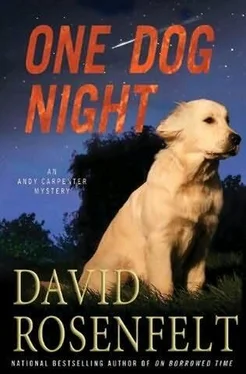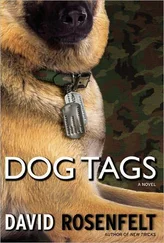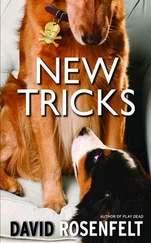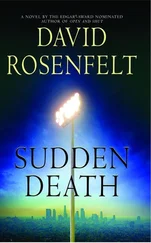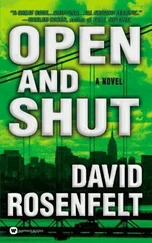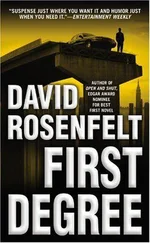He smiles. “Fine.”
“Thanks for coming all the way here,” I say.
“Happy to do it. I think I’ll pick up a watermelon downstairs as a remembrance.”
What if they gave a town and nobody came?
That’s what the residents of Jean, Nevada, would be asking themselves, if there were any residents of Jean, Nevada. But there are none, not a single one.
Another thing Jean obviously does not have is a city planner. Set up to be a gambling community, it stands on Highway 15, on the route into Vegas from Los Angeles. That might ordinarily be a good place to be, the theory being that anxious gamblers from L.A. might stop there to get a blackjack fix before driving on to Vegas.
The problem with that is that Primm, Nevada, is located just over the state line between California and Nevada. In fact, the original name of Primm was Stateline. Primm’s casinos are larger than Jean’s, which is just as well, since people actually go there. If they want to gamble before getting to Vegas, they stop at Primm. If not, they go on to Vegas. Either way, there’s no reason to stop at Jean.
None of this deterred Billy Klayman from making a one-o’clock-in-the-morning stop at the Gold Strike Casino in Jean. Having lost almost all of his money in a disastrous two-day trip to Vegas, Billy was driving back to his home in Anaheim a broke and hungry man. The broke part was going to be tough to solve, but the hungry part he could deal with. That’s because the sign in front of the Gold Strike was advertising “24 hour all you can eat-$6.99.” At least one of Billy’s credit cards should be able to deal with that.
So Billy parked his car in the nearly deserted lot and went in to the Gold Strike. It was a “serve yourself” buffet, utilizing small plates and difficult-to-reach entrees to deter patrons from overdoing it.
None of that had any effect on Billy, nor did the fact that the food had very little taste. He had arrived starved, and he was going to leave stuffed.
It took Billy forty-five minutes to have the meal, which included nine trips back to the buffet line. So full that he could barely get out of the chair, he left the restaurant, made a stop in the men’s room, and then another one in the bar adjacent to the casino.
He could only afford one beer, so that’s the exact number that he bought. He lingered over it for a half hour, not anxious to get back onto the road for the rest of the dreary ride home. Once he got there, he would have to explain to his wife where the rent money went, a conversation he did not relish at all.
Billy briefly considered taking a room in the hotel, but rejected the idea when he realized that it would cost money to do it. So instead he waddled out to the parking lot, and headed for his car. He was still depressed and miserable, but he was no longer hungry.
It was only about a hundred yards from the hotel entrance to Billy’s car, and Billy later remembered noticing how dark it was, and thinking that someone who left the casino flush with cash could be an easy target for a predator. Then he laughed to himself at the concept of someone leaving the Gold Strike Casino flush with cash.
Billy unlocked the driver’s side door and got in the car. More accurately, he tried to get in the car, but was stopped by the fact that there was already someone in the driver’s seat.
In the dim interior light of the car, Billy saw that it was a man’s body, wrapped tightly in what seemed like cellophane, but with an empty space where the head was supposed to be. The body rolled back and forth from the impact of Billy’s jostling it, then fell to the left and out of the car and onto the asphalt. In the process, it covered up the note that was taped to the body’s chest.
And then Billy screamed, loud enough to wake the residents of Jean, Nevada, if there were any.
Discovery documents are the New York Yankees of the criminal justice system.
Before the baseball season, all the experts look at the various rosters of the teams, and say that the Yankees are by far the best, and that there’s no way they should lose. And then supporters of the other teams bravely say that everyone should just wait until the season is played, and that although the Yankees may have the best team on paper, the season isn’t played on paper.
Discovery documents are the prosecutor’s version of events, and they chronicle in excruciating detail the results of what are usually intensive investigations by law enforcement. Obviously it is all incriminating to the accused, since it all resulted in the poor sucker getting arrested.
So as evidence “rosters” go, the discovery always shows that the prosecution’s is by far the best. Of course, in this case it’s a two-team league, which leaves the defense in second, meaning last, place.
But, like baseball games, trials are not “played on paper”; they are won or lost in the courtroom. Unfortunately, once they get off the paper and into that courtroom, the evidence included in discovery usually carries the day, and the prosecution winds up winning.
Just like the Yankees.
Considering the fact that this case was at least partially put together six years after the crime, the evidence-gathering against Noah has been impressive.
A number of neighbors identified Noah as a frequent presence in the area, and it was understood that he was purchasing drugs from the people in one of the first-floor apartments. He was also seen and heard earlier that evening engaged in an angry dispute with those same pushers, no doubt over their refusal to extend him credit.
It gets worse from there. Soon after the fire a paint can had been found in a trash can three blocks from the burned house. Testing showed it to have contained residue from the chemical compound identified as having caused the fire. There was DNA on the can, including a tiny piece of charred skin.
Noah’s DNA.
Noah’s skin.
Of course, the trigger that set this whole process in motion was the deposition given by Danny Butler. It makes for a devastating read, if you happen to be Noah’s defense attorney, which unfortunately I am, at least for the time being.
Hike and I go through the material together, exchanging documents when we’re through with them. I can hear him audibly moaning as he reads, which is not terribly significant, since Hike spends most of every day moaning.
When we’re finished, he says, “Well, at least we’ve got a client we can believe. When he says he did it, he did it.”
“So says the prosecution.”
“So says the evidence. Come on, Andy, that paint can is the goddamn murder weapon, and Galloway’s DNA is on it. The only thing they don’t have is a deposition from God saying Galloway set the fire. And they’d probably have that by the time we went to trial.”
“We haven’t developed our own evidence yet,” I say lamely.
“What are you talking about?” he asks. “We’ve already got the key piece. He saved your dog. All we have to do is present studies proving that dog-savers do not burn down houses.”
Hike is annoying me by not playing the game. A defense attorney is supposed to disbelieve and discount everything the prosecution says. “Have you ever read discovery that didn’t make it look like your client was guilty?”
“No, but my clients are always guilty.”
“And maybe this one is also, but we start by assuming he’s not, and we try to make the pieces fit. Maybe the real killer set him up to take the fall.”
Hike frowns, which is what he does when he’s not moaning, though he is able to do both simultaneously. “Interesting frame. They plant the evidence, and then wait six years to bring it to light. We’re dealing with some very patient framers.”
Hike is right, of course, but the more he talks, the more obstinate I feel. The problem is that my obstinate feelings have nothing to do with whether Noah will spend the rest of his life in jail.
Читать дальше
